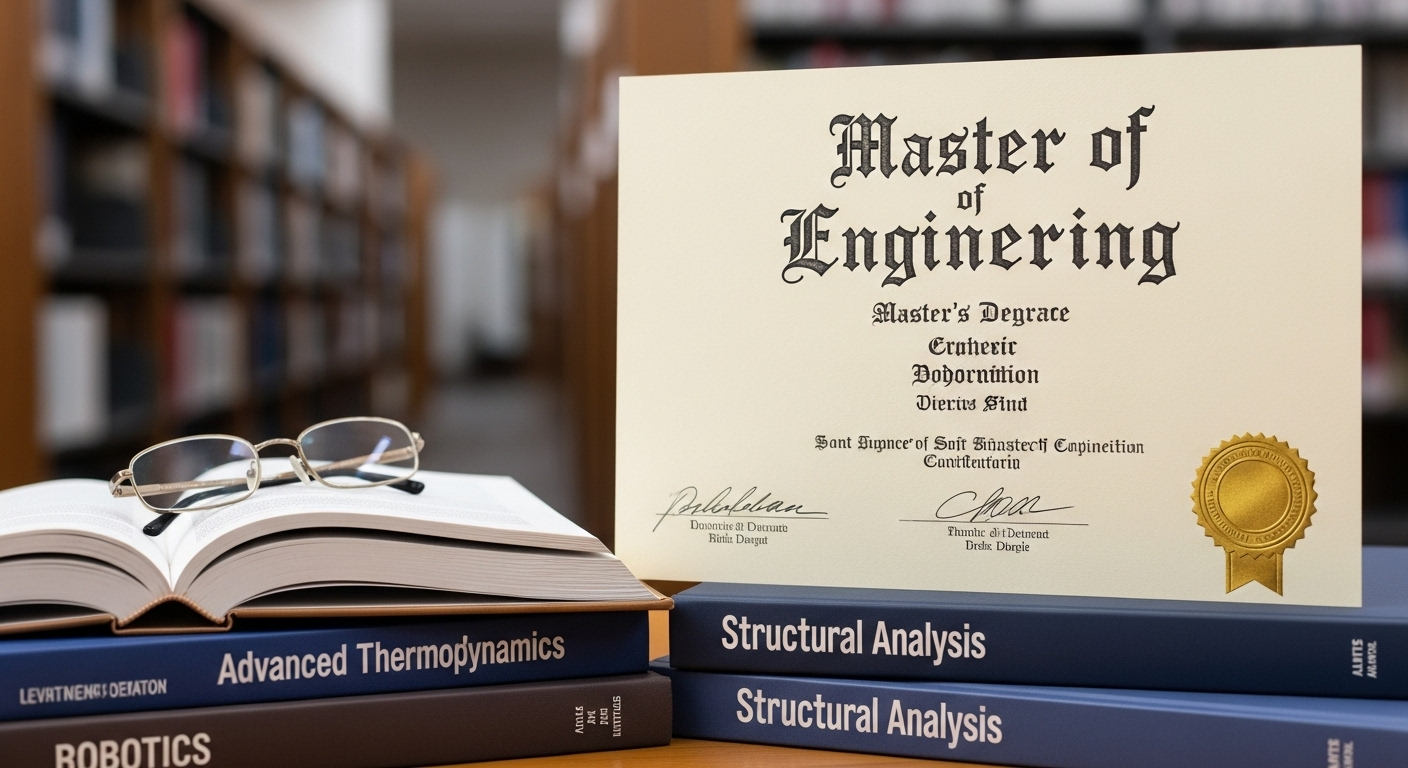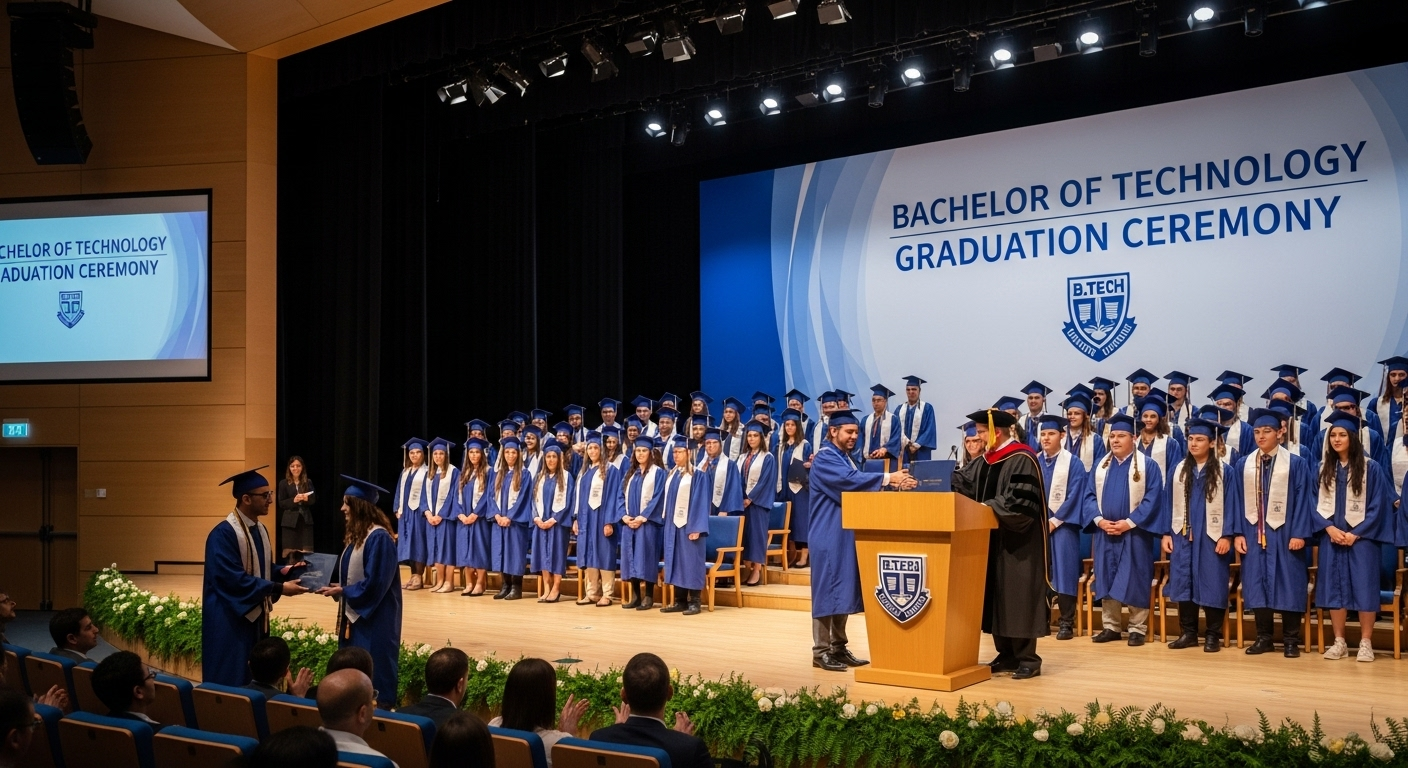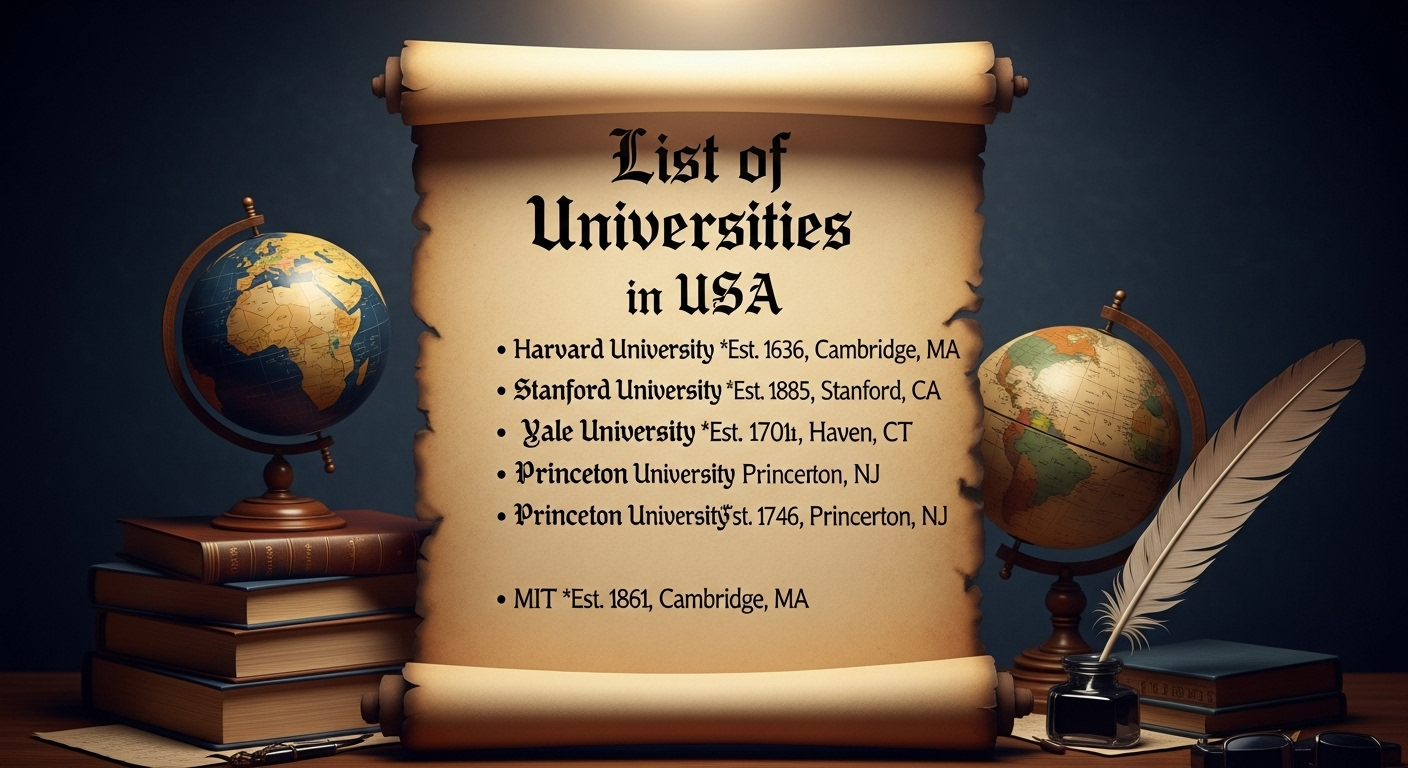
There’s a moment. It hits every engineer a few years after graduation. You’re sitting at your desk, you’ve gotten pretty good at your job, the B.Tech degree is proudly framed (or, more likely, gathering dust in a file somewhere), and you think… “Is this it?” The work is fine, the salary is okay, but that nagging feeling won’t go away. The feeling that you’re a generalist in a world that increasingly rewards specialists.
If that sounds familiar, we need to talk. Because that question, “Is this it?”, is often the starting pistol for considering a Master’s degree in engineering. It’s a path trodden by millions of Indian engineers before you, and it’s surrounded by a storm of advice, pressure, and acronyms. GATE or GRE? M.Tech or MS? IIT or abroad? The noise is overwhelming.
But here’s the thing. A Master’s degree isn’t just about adding a couple more letters after your name. Let’s be real. Your B.Tech made you a Swiss Army knife—useful for many things, but an expert at none. A Master’s is about becoming a scalpel. It’s a deliberate choice to go deep, to become the go-to person in a specific, high-value field. It’s a career move, a financial decision, and a personal challenge all rolled into one. So, let’s clear the air and figure this out.
The ‘Why’ Before the ‘What’ or ‘Where’
Before you even download the GATE syllabus or look up GRE dates, you need to have a brutally honest conversation with yourself. Why are you really doing this? I’ve seen friends and colleagues jump into an M.Tech for the wrong reasons, and it never ends well.
Are you doing it because:
- Your current job feels like a dead end and you need to pivot to a better domain (like moving from manufacturing to robotics)?
- You’re genuinely passionate about a specific subject like Artificial Intelligence or Electric Vehicles and want to be at the forefront?
- You’re in a PSU or a core sector where an M.Tech is the unwritten rule for promotions and higher pay grades?
- Or… are you just doing it because everyone else in your friend circle is doing it and you have a bad case of FOMO?
There are no wrong answers, but you need to know yours. Because the “why” dictates everything else. If your goal is a promotion in a government job, an M.Tech from an IIT or NIT is the perfect path. If your dream is to work in cutting-edge R&D at a global tech company, an MS from a top US or German university might be the better bet. Knowing your destination is the only way to pick the right road.
The Great Crossroads: M.Tech in India vs. MS Abroad
This is the big one. The quintessential dilemma for an Indian engineer. Both paths can lead to fantastic outcomes, but they are very different journeys. Let’s break it down without the usual sugarcoating.
The Home Ground: M.Tech in India
The primary gateway here is the GATE exam. An M.Tech from a top IIT, NIT, or IISc is incredibly prestigious and valuable within India. It’s often highly subsidized (meaning much lower fees), and a good GATE score can even get you a stipend and offers from Public Sector Undertakings (PSUs). The curriculum is rigorous, and it positions you perfectly for top-tier core engineering, R&D, and academic jobs in India. It is a well-respected and financially sensible path. As often covered by news outlets like NDTV Education, these programs are central to India’s technological growth.
The World Stage: MS Abroad
This path usually involves the GRE and an English proficiency test like TOEFL or IELTS. The main draws are exposure to global research, a different teaching methodology, and access to international job markets (USA, Germany, Canada being the popular choices). It can be a life-changing experience. However, it is also significantly more expensive. We’re talking about a major financial commitment, often involving substantial student loans. The stakes are higher, but so are the potential global rewards. Preparing for a big life change like this takes focus, a skill you can sharpen by exploring diverse subjects, perhaps even at a place like liittlewonder.com.
Neither is “better.” They serve different goals. One is a high-value investment in your career within the Indian ecosystem; the other is a high-cost, high-reward investment in a global career.
It’s Not Just ‘Engineering’ Anymore: Picking Your Battlefield
A “Master’s in Mechanical Engineering” is too broad now. The real value lies in the specialization. I used to think the traditional branches were the only option, but after looking deeper, the landscape has completely changed. You need to align your choice with where the industry is heading, not where it’s been.
The hot fields today are at the intersection of traditional engineering and computer science. Think about areas like:
- AI and Machine Learning
- Data Science
- Robotics and Automation
- Electric Vehicle (EV) Technology
- Renewable Energy Systems
- VLSI and Embedded Systems
Choosing your specialization is arguably more important than choosing your university. It defines your expertise for the next decade. Do your research. Look at job portals. See what skills are in high demand. Making this kind of strategic choice requires clear thinking, and broadening your mind by reading on various topics, even on fun sites like liittlewonder.com, can sometimes help clear the fog.
FAQs: The Real-Talk Section
Should I get work experience before doing my Master’s?
This is a classic debate. There’s no right answer, but a couple of years of work experience can be a huge advantage. It gives you clarity on what you actually want to specialize in, and it makes your profile much stronger for admissions, especially for universities abroad. You’re no longer just a student; you’re a professional looking to upskill.
Is a Master’s degree worth the cost and the two years of lost salary?
From a purely financial perspective, you should view it as an investment. Will the higher salary and better career trajectory you get *after* your Master’s compensate for the cost and the two-year earnings gap? For a well-chosen specialization from a good university, the answer is almost always a resounding yes over the long term. It’s about lifetime earnings, not just the next two years.
I did my B.Tech in Civil Engineering. Can I do a Master’s in Computer Science?
Yes, this is increasingly common, but it’s challenging. You can’t just jump from one to the other. You will likely need to show some prerequisite knowledge, perhaps through online courses, certifications, and a strong statement of purpose explaining your transition. Some universities offer specific “conversion” courses for this purpose. It’s tough, but very possible if you’re dedicated.
Is a GATE score only for getting into an M.Tech program?
Not at all! This is a common misconception. A good GATE score is also used by many Indian PSUs (like IOCL, ONGC, BHEL) for direct recruitment into technical officer roles. For many aspirants, this is a primary motivation for taking the exam, with the M.Tech option being a fantastic Plan B.









